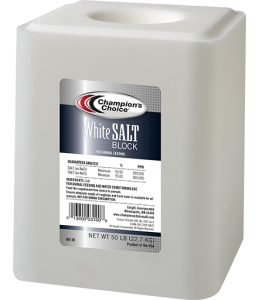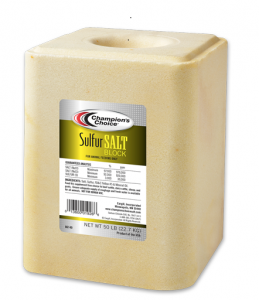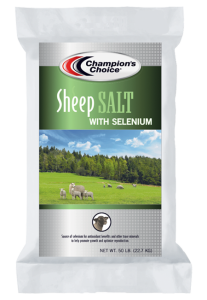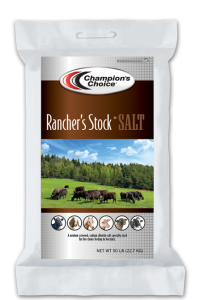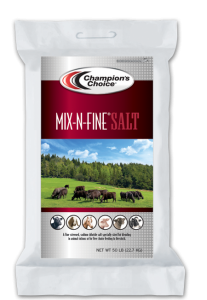Under normal conditions, horses require 2 ounces of salt per head per day. Under hot and humid conditions or with an increase in exercise, horses may require 4-6 ounces of salt per head per day. Lack of salt during heavy exercise can contribute to performance and health problems. Horses must also consume adequate water when they are consuming the extra salt.
Why feed trace minerals with salt to animals?
Salt is one of the few minerals that animals will seek out in their natural environment. There are seven trace minerals essential in feed: iron, copper, zinc, manganese, cobalt, iodine, and selenium. Since livestock have a natural appetite for salt, but not for trace minerals, this makes salt an ideal medium to deliver these vital minerals.
Is water softener salt harmful to animals?
Water softening salts are not intended for human or animal feeding. For some animals, particles may be too large and cause choking issues. In addition, some water softening salts may have additives that are inappropriate for animal feeds.
How does sodium deprivation occur in animals?
Sodium deprivation can be precipitated by dietary, climatic and disease factors and occurs under the following conditions:
- Rapidly growing animals given cereal-based diets that are inherently low in sodium
- Animals grazing pastures on soils naturally low in sodium
- Animals grazing pastures heavily fertilized with potassium
- Lactating animals, particularly cows, secreting large amounts of sodium in mild climates
- Tropical or hot, semi-arid climates, causing large losses of water and sodium in sweat
- Heavy or intense physical work that causes profuse sweating
- Animals with gut infections that cause diarrhea
When one or more of these conditions exist continuously for long periods and extra salt is not provided, sodium deprivation is inevitable.
What are the symptoms of salt deficiency in horses?
If horses are not receiving the proper amounts of salt, they may develop unusual eating habits like consuming dirt or chewing on tool handles, trees, board fences or another animal’s mane or tail. They may also have rough hair coats.
White Salt Licks
Compressed white salt licks in the form of blocks. Economical and efficient means of introducing salt into the animals’ diet. This salt lick in the form of a block is intended for beef cattle, dairy cows, horses, goats, pigs, deer and sheep. Salt licks are weather resistant for free choice feeding.
Available Forms:
50 lb block (22.7 kg block)
Sulfur Salt Lick (Block)
Our Sulfur Salt Lick in the form of a compressed sulfur salt block is made from fine-screened salt and formulated with sulfur. Sulfur is an essential element in body cells and in the amino acids cystine, cysteine and methionine. This sulfur salt lick or block is intended for beef cattle, dairy cows, goats and sheep. This sulfur salt lick or block is especially recommended when feeding urea or other non-protein nitrogen compounds in ruminant diets.
Available Form:
50 lb block (22.7 kg block)
Sheep Salt with Selenium
A fine-screened salt specially formulated with trace minerals to help meet the requirements of sheep. The trace minerals complement the diet to help promote digestion, growth, maintenance of body tissues, proper reproductive processes, and general animal well-being. Selenium is added as a supplement for use in selenium-deficient areas.
Available Form:
50 lb bag (22.7 kg bag)
Rancher’s Stock® Salt
Mix-n-Fine® Salt
A fine-screened sodium chloride salt specially sized for blending in animal rations (feed mixing) or for free-choice feeding of salt to livestock. This salt product is intended for beef cattle, dairy cows, horses, goats, pigs, poultry and sheep. This salt is suitable for all animal diets, but should not be used for direct human-food applications.
Available Form:
50 lb bag (22.7 kg bag)

